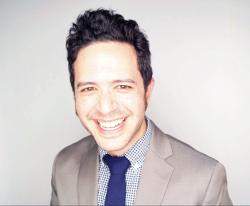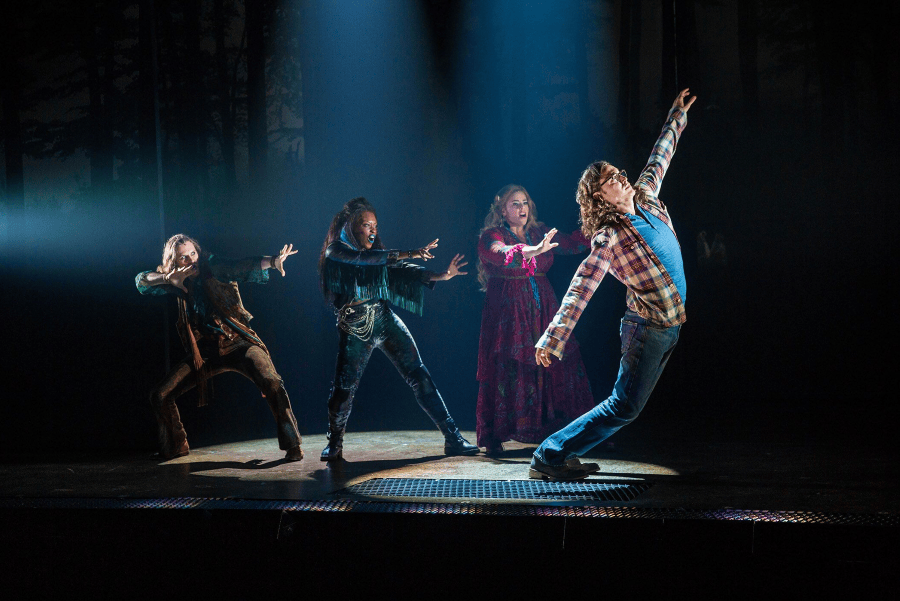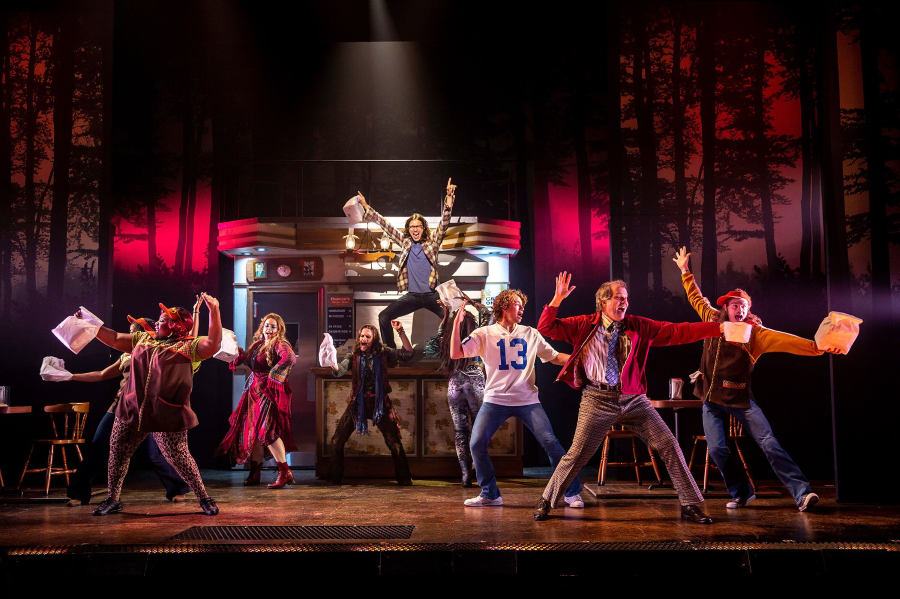Double, double toil and trouble/ Fire burn…and hot grease bubble? The Macbeths are up to no good in Scotland—Scotland, Pa., that is. This dark new musical comedy at Roundabout Theatre Company (Sept. 14-Dec. 8) puts the Macbeths in a curious setting: a burger joint in a small Pennsyvania town.
In this revamp of Shakespeare’s Scottish play, the titular general is Mac, the manager at Duncan’s Restaurant, where he works alongside his burger-flipping wife, Pat. When they’re passed over for promotions at the restaurant, they dream up a plan to rob the place and set up their own shop. Spoiler alert: It doesn’t go according to plan.

“There’s some blood, there’s some carnage,” says Adam Gwon, the show’s composer, with a laugh. The musical is based on Billy Morrissette’s 2001 indie film of the same name, which starred Christopher Walken as Lt. McDuff. The cult film, says Gwon, “hews pretty closely to the plot and characters of the original Shakespeare play.”
So how did this musical version of an indie movie based on a Shakespearean tragedy come to be? In 2009 Roundabout presented Gwon’s Ordinary Days as part of its Roundabout Underground program. This new-play initiative gives emerging writers the space to develop and present a new work, plus a commission for a second project. Roundabout set Gwon up on a few blind dates with playwrights for his subsequent project, and Gwon eventually paired with Michael Mitnick, who thought the film could be musicalized.
“It really grabbed me,” says Gwon of the movie. “I loved that it was this really smart new take on a story that a people were already familiar with. It had a lot of a big emotions which were really rife for musicalization. And I thought it was asking a really big question about the world—taking the idea of greed and ambition from the original Shakespeare play and planting it in this kind of down-trodden Pennsylvania working-class town.”
When Gwon began working on the musical adaptation, he didn’t realize the town was a real place. Indeed, Scotland, Pa.—pop. 1,395—is located 50 miles south of Harrisburg. So Gwon took a road trip. “It’s a little hamlet in a pretty rural place with lots of dive bars,” recalls Gwon. “Very working-class America.”
Details from the locale made it into the show, and the punchy musical score explores the finite number of social affairs in Pa., with such numbers as “Kick Ass Party” and “Why I Love Football.” (As a Pennsylvania native, I can attest that fun is indeed limited to house parties and Friday night football.)
Another layer to the story: It’s set in the 1970s, which led Gwon to listen to “a lot of pop music and rock music from that era,” which was mostly unfamiliar to him. He discovered in it “a really rich palette to work from. There was a lot going on musically.”

In bringing this work to the stage, Gwon and Mitnick enlisted the help of the filmmakers. The producers gave their blessing to transform the cult it into a tuner, and the film’s writer and director, Billy Morrissette, was instrumental throughout the development process. “He’s been really supportive and has really great insights about the world of the show and the tone of the show, because he lived in that world and navigated the same pitfalls that we’ve been navigating,” says Gwon.
Over the past few years, Roundabout has hosted a number of readings of Scotland, PA as it developed. As the musical has morphed into a three-dimensional story—thanks in part to Morrissette, director Lonny Price, and choreographer Josh Rhodes—the creators have found the show to take on new meaning in today’s sociopolitical climate, particularly in its sense of working-class greivance taking violent form.

“It feels like the story has played out in front of our eyes in real life,” shares Gwon. “We really just tried to look that in the face and embrace it and be sort of bigger, slightly more dangerous ideas about what the American dream means right now. It found its way into the material; it wasn’t there in our first drafts.”
Gwon hopes that audiences will glean a message about the danger of oppressing people’s voices. “At the end of the day, this show is sort of—in a fun way—illuminating the dangers of what happens when we don’t listen to people who are trying to be heard, when we sort of ignore people that we, for whatever reason, deem to be beneath us. Things can get ugly.”
Creating a new musical can get ugly, too, especially one with a body count. Gwon is grateful for Roundabout’s unwavering support throughout the show’s development, and throughout his career. Gwon’s decade-plus relationship with the company began even before Ordinary Days debuted in 2009: Gwon was a Roundabout intern and later served as a teaching artist with the education department. Being part of the company’s first fully realized musical commission has been both exciting and a bit nerve-wracking, he concedes.
“It’s a daunting process, and feeling like you’re supported along the way means a great deal,” says Gwon. “Being commissioned by a theatre is such a vote of confidence. If nothing else, it is a gesture that a person or an institution believes in you, your work, and your potential to make something good—and that’s really powerful in a writers’ life.”
Roundabout Theatre Company’s production of Scotland, PA with book by Michael Mitnick, music and lyrics by Adam Gwon, based on the film by Billy Morrissette. Direction by Lonny Price, music direction by Vadim Feichtner, choreography by Josh Rhodes, fight direction by Thomas Schall, orchestrations by Frank Galgano and Matt Castle, scenic design by Anna Louizos, costume design by Tracy Christensen, lighting design by Jeanette Yew, sound design by Jon Weston, hair, makeup, and wig design by J. Jared Janas. Timothy R. Semon is the production stage manager.


